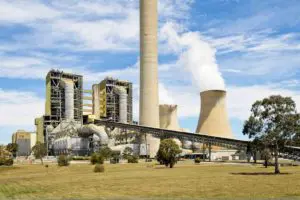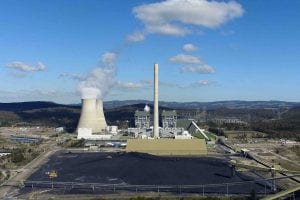The Queensland energy minister has expressed deep concern over the potential implications of a new coal-fired power station in Queensland that is being pushed by the Morrison federal government, and the impacts it may have on the Queensland economy.
Queensland energy and resources minister Anthony Lynham has written to his federal counterpart, Angus Taylor, detailing his concerns about the grant given to pursue a feasibility study for the proposed 1GW plant in Collinsville, and the potential impacts it could have on the Queensland energy system and on jobs at existing generators.
In the letter seen by RenewEconomy, Lynham says that he is concerned that a new power station is not needed, and would simply work to push some of the existing Queensland coal-fired generators out of the market, costing jobs and risking existing investments.
“I am deeply concerned of the impact this plant could have on other coal fired power stations in the state and what assumptions your report makes about their closure to make another coal fired power station viable,” Lynham says in the letter to Taylor.
“In particular, I am concerned about the potential impact on the approximately 250 employees of the privately-owned Gladstone Power Station and their families and the assumptions your report makes about their future.”
Lynham highlights the fact that there have been no recent studies that have suggested that there is a need for a new coal-fired power station in Queensland, in contrast to Coalition claims. The power station has been pushed by former resources Matt Canavan, who cites a study commissioned by Queensland Labor that said such a plant would be viable, but only if electricity prices remained high.
Energy analysts are virtually unanimous in their view that a coal power generator in Collinsville would be unviable, either economically or environmentally, and there has been considerable concern expressed about the allocation of the grant to a little known company Shine Energy that has produced no projects of size.
In the letter, Anthony Lynham suggests to Angus Taylor that investment in new renewable energy projects may be a more viable alternative.
“There are other options where you could support Queensland in the electricity market,” Lynham says. “Analysis published in recent years suggests that under the Queensland Government’s 50 per cent renewable energy target, increasing renewable energy can deliver reliable and affordable electricity whilst achieving significant reductions in greenhouse gas emissions.”
Lynham also noted that the federal government had already awarded funding support for a new 132MW gas-fired power station in Gatton under the Underwriting New Generation Investments (UNGI) scheme.
“The potential impact of a new coal-fired power station entering the Queensland electricity market is significant. We are aware of no previous study that has supported a requirement for additional coal generation in Queensland,” Lynham wrote.
Lynham cited CSIRO analysis that suggested a new coal-fired power station built in Australia would require a wholesale electricity price of more than $120 per MWH to be viable, along with indemnity from any future carbon price, far above both current prices in Queensland and the $70 per MWh target set by Angus Taylor.
The Queensland energy minister has also requested that Angus Taylor provides a copy of a feasibility study that the Morrison government has commissioned into the potential power station at Collinsville.
The company promoting the generator, Shine Energy, currently operates no power stations in Australia, and appears to have no experience in delivering any projects of any size. Company extracts seen by RenewEconomy confirm reports that Shine Energy’s senior management have had close ties with political parties, in particularly the Katter party.
Shine Energy CEO Ashley Dodd, a member of Shine Energy’s executive team Les Muckan and former company director Luke Shaw have all previously stood as election candidates for the Katter Australia Party, or been involved in the running of Katter’s election campaigns.
Dodd ran as a candidate for the Katter Australia Party at both Queensland state and Federal elections in 2012 and 2016 respectively, and was appointed to Bob Katter’s “shadow cabinet” in 2013.
Muckan previously served on the Fraser Coast council as a member of the Liberal National Party, before resigning in 2012 to subsequently join Bob Katter’s party and contested the 2013 federal election as a Katter party candidate.
A third former company director Luke Shaw, who is a former member of the Young Nationals, also served as the campaign director of the Katter Australia Party.
When Shine Energy’s proposal to build a new coal-fired power station was revealed in early 2019, the proponents repeatedly stressed that the venture was not looking for taxpayer finance, but instead sought indemnity from any future form of carbon pricing.
At the time, Dodd said that he hoped the Big Four banks would finance the project, as a way to support new power generation capacity as well as to support an Aboriginal owned and led business venture.
“Here’s their chance to actually step up and work with Shine Energy, as a traditional owner company,” Dodd said.
The Morrison government provided $4 million to fund the completion of a feasibility study into the proposed Collinsville power station. It is understood that the results of the study have been delivered to the government but have not been released publicly.
Minister Taylor has been contacted for comment.







